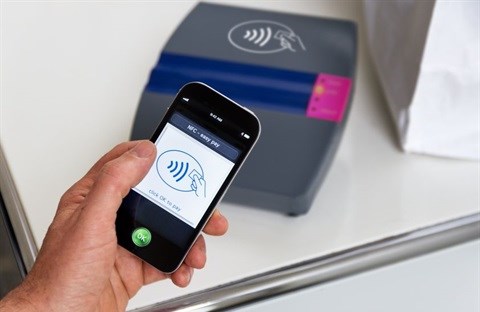Trending
Seven ways small businesses can use technology to boost sales
1. Utilise leading-edge POS systems
POS stands for point of sale - it's where a retail transaction gets completed. Customers are accustomed to typical POS systems, such as a cash register at a local convenience store or an online shopping cart for purchasing goods online.
It takes a while for customers to adapt to new systems, as was the case when kiosks were introduced at airline terminals and self-checkout screens appeared at grocery stores.
Today, companies like HP are looking for new ways to improve business efficiency and maximise space utilisation with POS systems. These systems can work as standalone units or in conjunction with other store systems - or even with other computers in the cloud. They make it simple for your customers to make their purchases and give you more time to make additional sales.

2. Use website security and backup services
Small business owners spend a lot of time on the small details of their company's operations. When stuck in that minutia, it's easy to overlook basic security measures for your company's website operations, email, and customer data. Let's examine these in reverse order.
We've all heard of the data security breaches at major department stores, such as Target or Home Depot, in which millions of credit card records were stolen. A huge department store can absorb some of the unwanted publicity that comes with such a breach, but a small business will have a much harder time doing that. This means ensuring data protection is critical. As an added bonus, secure websites often get better search rankings.
It's also important to back up company data and archive email. If not, small business owners are one lawsuit away from being out of business. A good email archiving service will provide technology that makes searching for and finding specific communications easy.
Also try using an offsite backup service for your regular files - such as Carbonite, Dropbox, or a similar service provider - to make sure your files are always protected.
3. Promote your business with social media
It's clear that small businesses need to have a social media presence. Having a page on Facebook is a good start, but Facebook is just one source for social media. There are often other web-based venues that can provide more social media exposure.
Let's say you own and operate a restaurant in a high-traffic area of town. You can team up with other restaurant owners and shop owners to create a website that promotes your general area. Or you can offer promotions and engage with customers on your personal social media profiles. Anything that engages your clientele will help them view you as an industry expert and someone they want to do business with.
4. Use long-tail keywords
SEO, or search engine optimisation, is still critically important to attracting new customers who look for your business on the Internet. Search engine technology is completely algorithmic, so it pays to think like those algorithms.
Think about what someone else would ask of a search engine. Someone looking for a hardware store is more likely to search for "hardware store near Main Street" than "hardware store" if Main Street is where he or she happens to be. "Hardware store" is a keyword but "hardware store near Main Street" is a long-tail keyword.
You'll get more visits from potential customers if you tailor your web content to take advantage of the keywords that people are most likely to use when searching for your business.
5. Harness the power of predictive analytics
Small businesses can give themselves a boost by capturing information about their customers and looking for patterns in that data. This is the field of predictive analytics - technology that creates mathematical formulas to predict what customers want, what they will spend, when they will buy, and so forth.
IBM has advertised its predictive analytics tools widely on television, but small business owners may not have the capital required to work with a company like IBM. Instead, small businesses can seek out smaller predictive analytics companies or consultants to help them directly. You can collaborate for a share in the increased sales, meaning lower or even no out-of-pocket upfront costs.
6. Use telecommuting tools
Office space costs money. Some businesses need everyone to be in one office but many do not. Telecommuting technology, such as software offered by Citrix (GoToMeeting), JoinMe, WebEx, and others can facilitate virtual face-to-face meetings. They allow workers to share data, exchange control of the computer screen, and collaborate easily when needed.
For many businesses, it's much cheaper to use telecommuting technology than it is to lease office space.
7. Provide mobile payment options
For years, customers have relied on credit cards to complete their transactions. But with the ubiquity of cellphones and small tablets, using those platforms to complete a transaction makes sense.
Until recently, your customer might need a special phone with a smartcard to swipe near a card reader in order to make a mobile purchase. More recently, companies have created ways to complete payments on cellphones based on audio signals using different customs apps, such as Way2ride.
Apple has created Apple Pay, which allows customers to pay from their credit cards by using a single touch on their iPhone 6. Small businesses need to have what's called a "near field communication" antenna to support these methods. Vendors can provide the mobile payment processing equipment that small business owners will need to facilitate the transactions.
As mobile phones continue to offer applications that make our wallets obsolete, small business owners can do themselves a favour by staying ahead of this technology wave.
Technology is constantly developing and finding cutting-edge ways to make our lives easier. As a business owner, it's important for you to find the edge you need to maximise profits. Take advantage of some of these technologies to boost your bottom line and save time in the process.


















